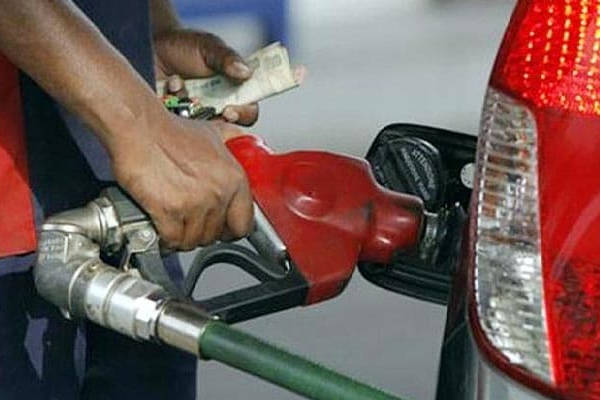You’re being deceived on subsidy: Don’t fall for it — By Moses Ochonu
4 min read
Petrol
It’s disheartening to see a consensus emerging among unsuspecting and otherwise critically minded Nigerians on fuel subsidy.
The rhetorical offensive of successive governments on the issue has proved so successful. The debate has now shifted from whether petrol, the single most consequential product in our economy that directly or indirectly drives all economic activities, should be subsidized to when and how subsidy should be removed and how the government should invest the resulting revenue boost.
That’s exactly how the political elite want it. These are their preferred terms for discussing subsidy.
It’s not about the corruption in the subsidy regime. They’re trying the shape and shift the terms of the discussion to only focus on inflated subsidy invoices, which they’ve been paying to their favored subsidy claimants.
Stop falling into their well-laid rhetorical trap for justifying the effort to transfer the cost of their greed, incompetence, and corruption to the masses.
A serious government that’s not implicated in the subsidy corruption and that truly wants to audit its subsidy waste will take measures to clean it up so that only legitimate subsidy claims are paid. This is the only sensible short-term fix that does not punish regular citizens for the financial sins of their political elite.
It’s not about whether the proceeds of so-called subsidy removal will be invested wisely. That’s part of their rhetorical deception, their effort to distort the discussion to focus on the wrong questions. Not only have we seen how the proceeds of previous “subsidy removals” were frittered away, but this is also the wrong conversation to be having.
There are real questions that need to be posed and which they’re trying to keep you from asking by getting you to accept a flawed premise. They’re trying to get convince you that subsidizing fuel by whatever means, which is popular in many countries, including the US, because of the positive ripple effects of affordable petrol on the real economy, is bad. They’re doing so by steering you rhetorically to focus on the wrong issues. Here are the real questions and issues:
1. If subsidy has been removed or partially removed multiple times in the past, why does the need to heavily subsidize fuel exist and persist? Could it be that the idea of subsidy removal is a fraudulent distraction from the real issue that we have lost our domestic refining capacity, despite spending millions of dollars on failed turnaround maintenance (TAM) contracts and have had to depend, for the last two and half decades, on imported petrol?
2. Related to the above, why have successive governments not tackled the root cause of the problem by restoring domestic refining to meet our petrol consumption needs?
3. With the FG being an investor in Dangote Refinery, with the revelation by the CBN that it lent tens of billions of Naira to the project, and with the previous announcement by NNPC that it will supply a sizable volume of our crude production to Dangote Refinery, which should eliminate the costs associated with purchasing and importing overseas petrol, why should fuel not be affordable in Nigeria even if Mr. Dangote adds something on top of his refining cost to make a deserved profit for his trouble? It’s a mystery for us laypeople.
4. Given the reality that, for good or ill, in Nigeria, everything in the real economy (public transportation, home and small business power generation, the service industry, the movement of goods and labor, etc) depends on petrol being affordable, is the subsidy not worth sanitizing and preserving, whatever it takes, in the short-term in order not to destroy what’s left of the battered economy and inflicting more suffering on our beleaguered masses?
5. Related to the above, why is it that every time ruling political elites spends, borrows, and steals its way into fiscal trouble, they try to raise revenue through “subsidy removal” rather than cutting the perks of public officials and tackling the scandalous waste in the MDA budgeting system? Is it because removing subsidy is the path of least political resistance and leaves intact the equally costly but disguised subsidies extended to the political elites in the executive, legislative, and bureaucratic realms of government?
6. Is the rhetoric of “subsidy removal” not a policy discourse or consensus informed by the out-of-touch narcissistic consumption habits of political and business elites who can afford expensive petrol and are thus unable to relate to how regular Nigerians will find their daily routines truncated and their survival hustles drastically curtailed?
7. Is it not the case that, if Nigeria continues to import refined fuel and cannot refine its own, the discrepancy between the landing cost of imported fuel and the pump price will resurface intermittently as crude prices, shipping costs, and other fluctuating variables in the international economy push the landing cost up or down? Does that not mean that no subsidy removal is final, as our history has shown, since unpredictable developments in the global petroleum demand and supply equation and supply chain will likely, even if temporarily, produce a new discrepancy and necessitate subsidy down the road? By the way, why do we pay subsidy even in times when global oil demand is down and there’s a slow down in global economic activity? Is that not 419 subsidy? Is that corruption, along with the graft of over invoicing, not the real problem that needs to be tackled if government is not lazy or complicit? Again, why skirt the real problems to implement a measure that’s not a permanent fix and will inflict long-lasting, perhaps fatal, damage on the economy and citizens’ livelihoods? Why cut off your hand because you have a stubborn, painful, but treatable pimple on it?

